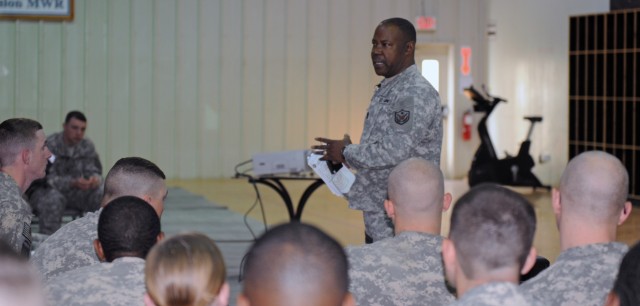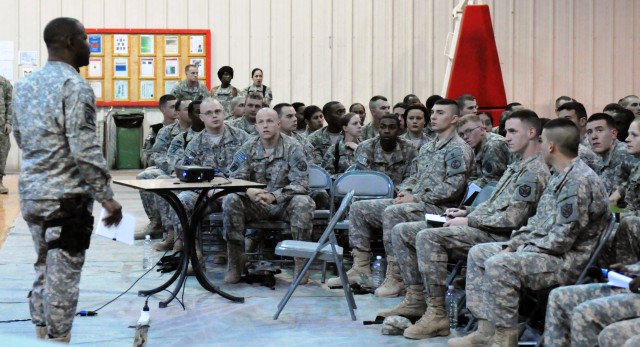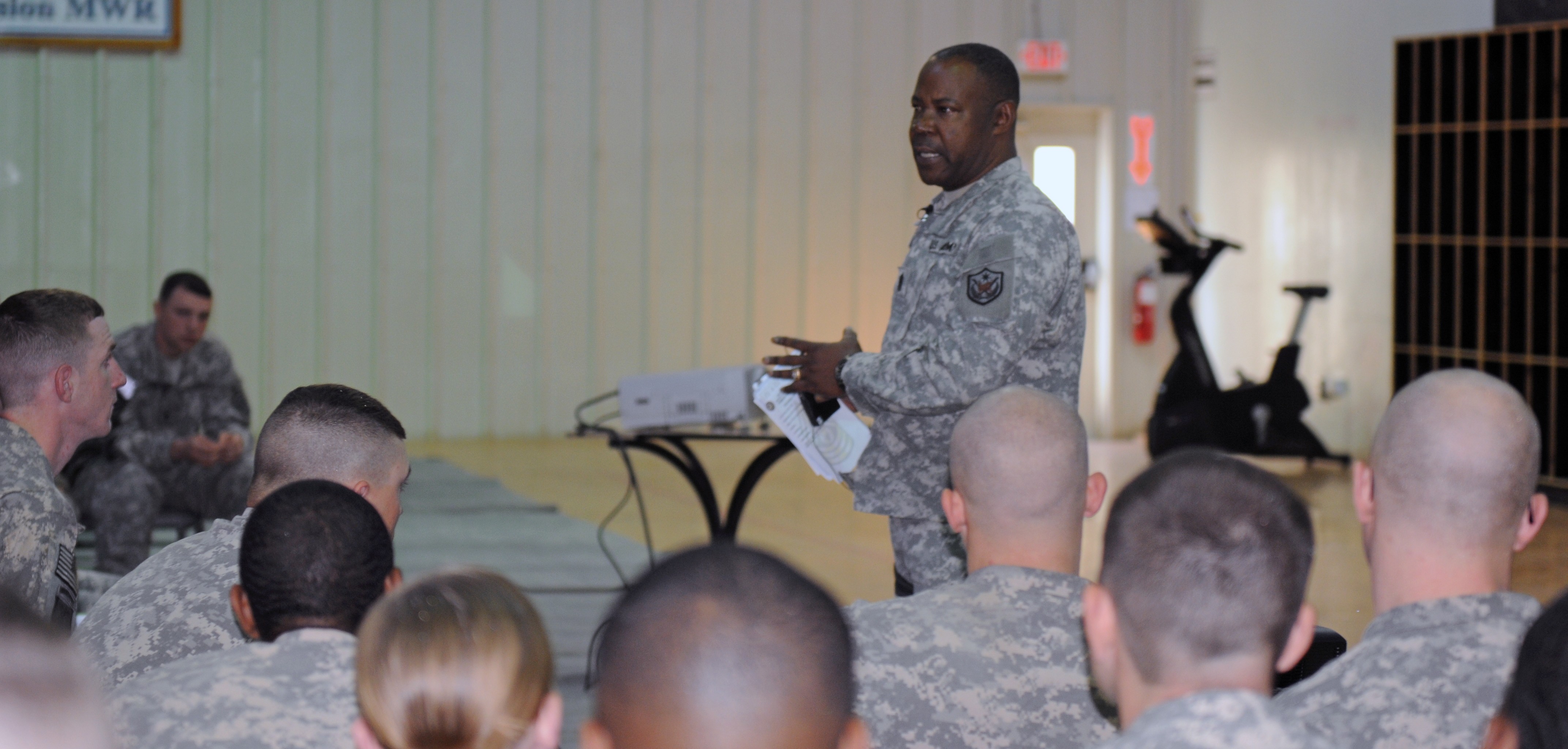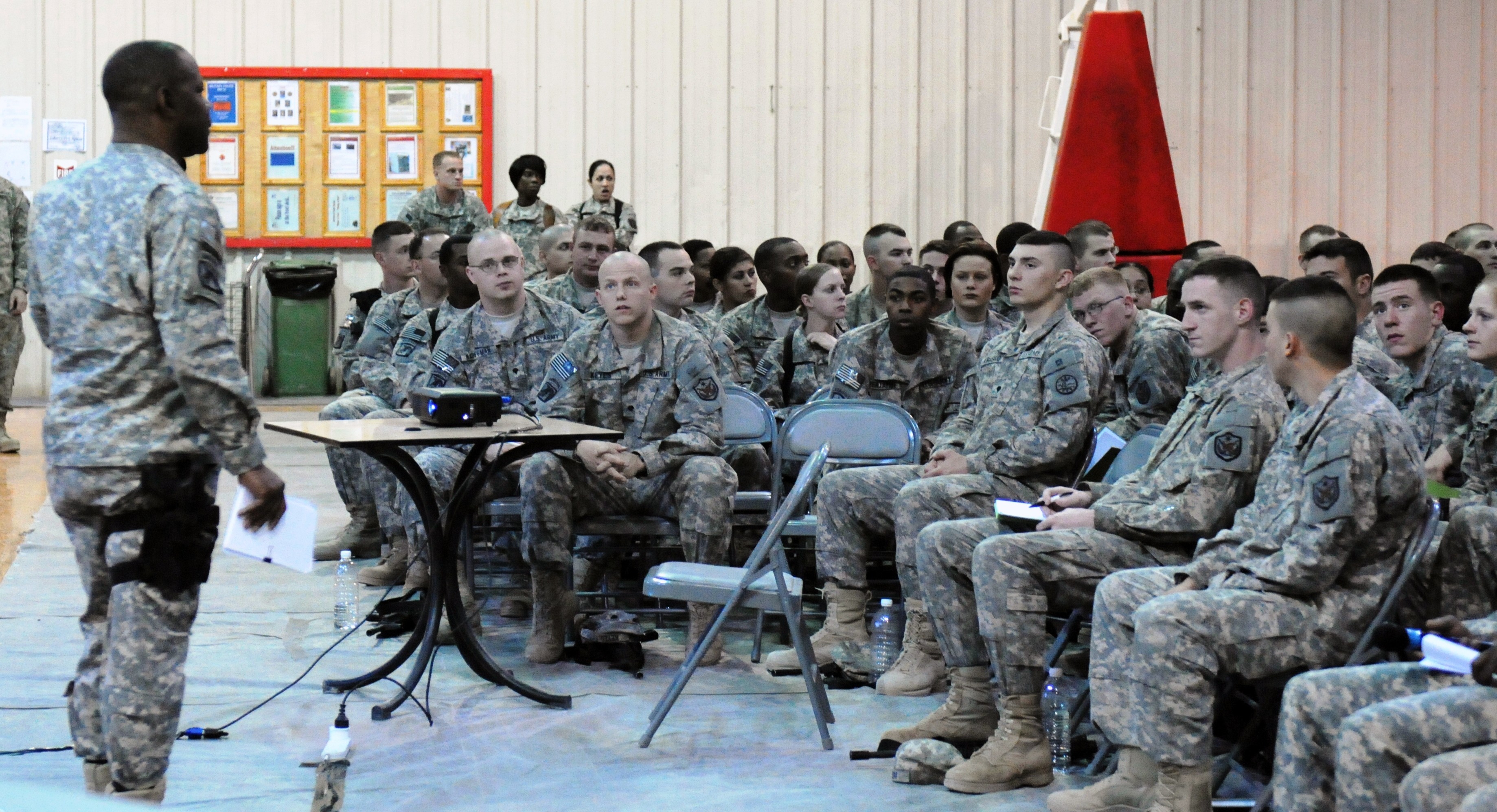Leadership is an essential element within an organization. The military functions and depends on this component to sustain its order and discipline. For more than 200 years, the military has trained its service members to be leaders and pave the path for others to follow.
Over the years, leadership within the nation's military services has evolved. The function of the leader was typically to set up and enforce performance criteria to meet organizational goals. The main focus of a leader was strictly on the needs (mission) of the organization and not on the needs of the individual.
Today, the function of the leader is to facilitate cooperative goal attainments of individuals while providing opportunities for personal growth and development. Their focus has adapted to include individual needs as well as the needs of the organization.
"We have gone from leading service members into combat to a combination of leading, overseeing, and protecting while in combat," said Command Sgt. Maj. Joseph R. Allen, command sergeant major of United States Forces - Iraq.
The military is always changing to improve, enhance and adapt to society, said Sgt. Maj. Joseph Goebel, sergeant major of USF-I Inspector General office. "As we progress, our leadership tactics must follow suit.
Over time, leadership skills are attained through development and practice, said Allen. "The rank and position gives you authority, but it does not make you an effective leader."
This sentiment resonated with the audience that Allen was addressing recently during an junior enlisted development program.
"An effective leader is someone who has the potential to lead by example," said Spc. Radnee Anib, an infantryman with command personal security detail. "This individual must be willing and able to perform any mission."
A leader's effectiveness is measured by the ability to follow as well as understand others, said Spc. Gregory Sword, an intelligence analyst with Company A., 345th Military Intelligence Battalion. "I expect my leaders to guide me and mentor me as I prepare for my next step in the Army."
"We have added the emphasis of taking care of Soldier's needs and the needs of their families," Goebel said.
Leaders in the armed forces are placed in challenging positions each day. They must address the needs of every person in a peculiar manner that is relative to their issue, Allen said. "I change my cape each time I speak to a Soldier because each one deserves a different perspective depending on their situation."
It is crucial that leaders know their subordinates for several reasons, said Anib. They may identify issues immediately, as well as individual strengths and weaknesses which may assist or hamper promotion and progression.
The ability to listen to an individual is an elusive skill that leaders must exercise, Goebel said, "Sometimes you just have to pause, gather the facts, and then act."
In deployed situations, service members must contend with multiple stressors that are incorporated with being away from home and working in a hostile environment. Leaders must know how to assess needs and respond to them accordingly.
Leadership is a matter of intelligence, trustworthiness, courage and discipline. No one has a patent on leadership, Allen said, acknowledging that mistakes will be made. But, the results of those errors, he said, will benefit future decisions and enhance leadership skills.




Social Sharing